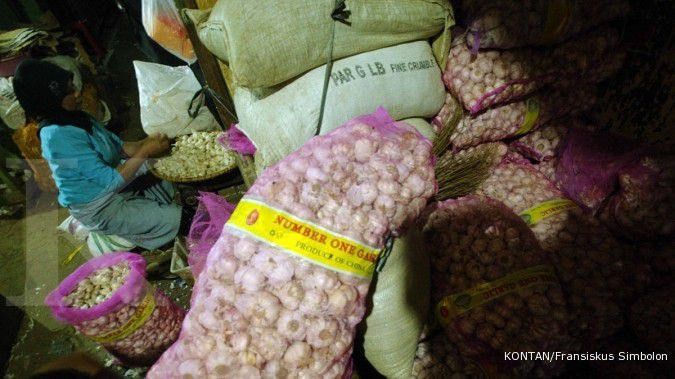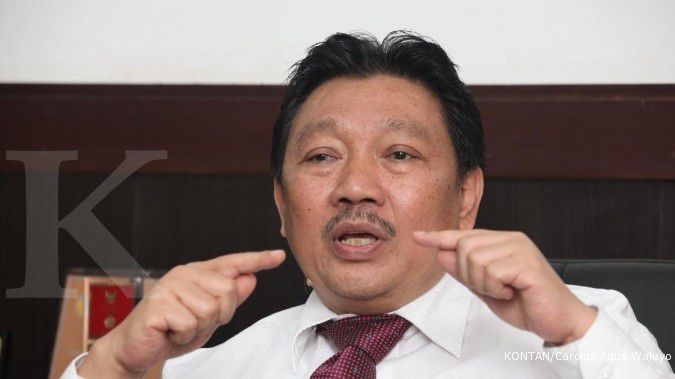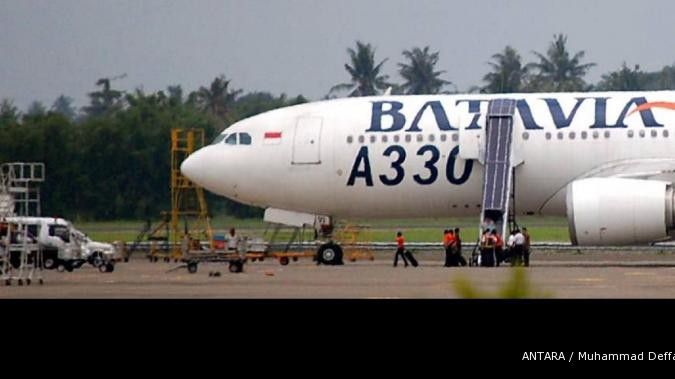JAKARTA. Coordinating People’s Welfare Minister Agung Laksono is in doubt that the ministry’s pro-people rice for the poor program, locally known as raskin, is being plagued by cartel practices as suspected by Corruption Eradication Commission (KPK) deputy chief Busyro Muqoddas.
Agung said that the allegations must be supported by strong proof and evidence as he believes the program is generally running well.
“Where did the cartel practices take place? The allegations should be studied thoroughly because it is the State Logistics Agency, Bulog, who buys the rice from farmers,” Agung said during a press conference at his private residence in East Jakarta on Sunday.
Agung, also the deputy chairman of the Golkar Party, did not rule out the possibility that cartel practices could have occurred in the implementation of the raskin program, but “should any irregularities have taken place, the size would not have been massive”. He added that the raskin program was transparent and accountable.
Busyro said on Thursday that the program was marred by cartel practices, and he therefore urged the central government to redesign the program to make sure that all beneficiaries could get maximum
benefit from it.
“Our examination found strong indications of cartel practices in the raskin program,” Busyro said.
Busyro warned that if the central government decided to continue the 15-year-old program it should first redesign its current systems, which he said opened the way for individuals to commit corruption.
He added that the KPK had also found that there were many traders who amassed rice intended for the poor and resold it on the open market.
“There are also cases where households received only 5 to 10 kilograms of rice, while in fact they should have received 15 kilograms of rice as outlined by the program. Some also had to buy raskin rice for more than Rp 5,000 [per kilogram] from traders,” Busyro said.
Each household participating in the program should only have to pay Rp 1,600 kilogram per kilogram of raskin rice, thanks to the massive government subsidy disbursed every year.
According to data from the KPK, the budget allocated for the raskin program was Rp 21,4 trillion for 15.5 million targeted households in 2013, while it was Rp 19.3 trillion for 17.4 million targeted households in 2012 and Rp 16.5 trillion for 17.4 million targeted households in 2011.
Meanwhile, data from the Cabinet Secretariat showed that the government allocated around Rp 15.3 trillion for the raskin program in 2011, Rp 15.6 trillion in 2012, Rp 17.9 trillion in 2013 and Rp 18.8 trillion in 2014.
The ministry claimed that the decreasing number of households participating in the program year to year was “progress” that indicated the government had successfully decreased the number of poor households in Indonesia.
“We don’t [continue] giving rice to households that improved economically. In 2008, we distributed rice to around 19.1 million households and in 2013 the number decreased to 15.5 million,” a statement on the Cabinet Secretariat’s website said.
Despite his rejection of the corruption allegations, Agung insisted that he agreed with the KPK’s recommendation to review the program.
“It is true that the program should be evaluated regularly, which we already consistently do. But, if the concerns are about stopping the program, that’s not a solution,” said Agung, who is also a medical doctor.
Many have criticized the quality of the rice distributed through the program, as a number of cases showed that the distributed rice was infested with bugs. (dhi)
Minister to probe KPK’s rice cartel suspicions
April 07, 2014, 02.51 PM
/2013/11/13/121971711.jpg)
ILUSTRASI. Informasi jadwal penerbangan Balikpapan – Tarakan pakai Super Air Jet
Reporter: Asnil Bambani Amri
| Editor: Asnil Amri
Latest News
-
March 02, 2026, 04.45 PM
Indonesia has Seized 5 Million Hectares of Palm Oil Plantations, Task Force Says
-
March 02, 2026, 01.10 PM
Asian Assets Slide as Mideast Strikes Spark Oil Spike, Haven Rush
-
March 02, 2026, 10.49 AM
Bank Indonesia Monitoring Market Movements in Response to Conflict in Middle East
-
February 25, 2026, 08.28 PM
Inpex to Solicit Bids for Construction of Indonesia's Abadi LNG Project in Mid-2026
-
February 24, 2026, 03.38 PM
Eni to Reach Final Investment Decision for Indonesia Gas Projects Next Month
-
February 24, 2026, 01.00 PM
Asia Stocks Try to Steady after Wall Street Selloff Sims Mood
-
February 23, 2026, 04.50 PM
Wall Street Futures and Dollar Slide on Trump Tariff Tumult
-
February 23, 2026, 02.17 PM
Indonesia's Government Spending Jumps 26% in January 2026
-
February 23, 2026, 01.47 PM
Indonesia's Government Spending Jumps 26% in January













